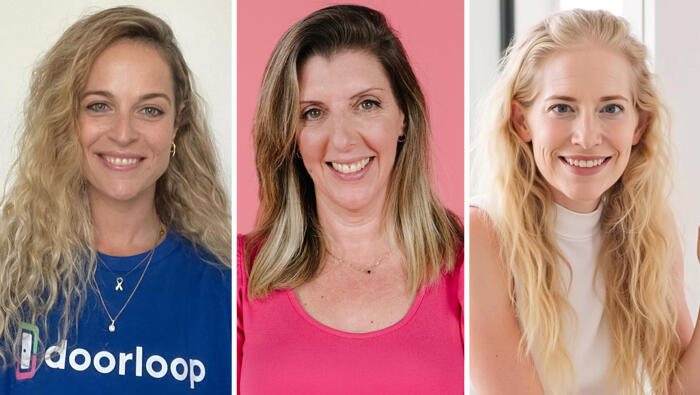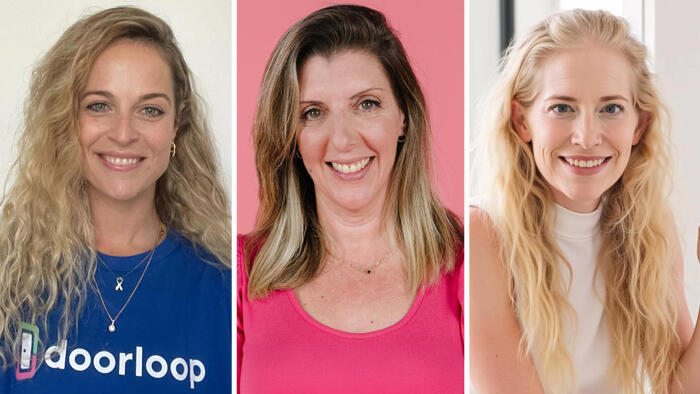
HR in the AI era
"I don’t see CVs surviving this revolution": AI is changing the hunt for a ‘good’ candidate
The recruiter’s new reality is one where AI-generated résumés are forcing hiring managers to deal with an unprecedented standard of perfection. Across Israel’s tech sector, HR departments are finding ways to look beyond the surface, rediscover the value of authenticity, and approximate “good” in an era where every submission is outstanding, effectively changing the face of recruitment along the way.
“I don’t see CVs surviving this evolution. It’s just gonna be redundant,” says Avigail Levine, founder of Ma Batafkid, an Israeli career-management community geared toward women in tech.
AI enhancement tools have become so ubiquitous in the job application market that it is now flooded with indistinguishably “perfect” resumes, prompting an overhaul for HR departments and recruitment professionals everywhere. What does a “good” resume look like today? And perhaps more importantly, does it still matter?
A few months ago, Levine took to LinkedIn to post a similar thought, sharing a question in Hebrew that roughly translates to:
“A question for the recruiters in the audience: how are you dealing with CV sourcing since the influx of AI tools into our lives and the optimization they’re making to CVs?”
Ironically, Levine’s question came from her own experience creating a resume-enhancing AI bot, which worked so well that it led her to sympathize with the plight of modern-day recruiters. “I play a lot with AI tools,” Levine explains. “I myself built a few bots that improve your CV.”
“While I was building these tools, I was wondering, how do they manage the crazy amount?” she continues. “Generating a CV now is so easy, and generating the exact CV that is relevant to a specific position is so easy… That’s why I wrote the post.”
From the responses she received to her post, one of the main frustrations to emerge from this new paradigm, Levine says, was an ever-growing dissonance between resume and reality. “The gap between the CVs and the people that come to the interview are huge.”
Recruiters are often grappling with the belief that “they have a perfect match,” Levine recounts. “But then when the people come to the interview, they have no idea what they’re talking about.”
That widening gap wrought by AI-enhanced resumes is something Naama Barzilay, Recruiting Manager at AI-based photo-editing company Imagen, has also noticed, particularly during busy recruitment periods, even with automated HR systems in place.
“I had something like 14 positions opening at the same time,” Barzilay gives as an example. “I got a lot more CVs because it’s easier for people to manage the CVs and to send them with no limitations.” Among them, she notes, are candidates who might once have struggled to express themselves in English, something AI can now easily compensate for.
Related articles:
That being said, there seems to be a growing consensus that for every AI tool applicants use to enhance their CVs, HR managers and recruiters are developing and leveraging AI mechanisms of their own to help cut through the noise.
At DoorLoop, an Israeli automated property-management software startup that has grown from 150 to 220 employees in just one year, Anat Keidar, the company’s Chief People Officer, describes how this looks within their hiring process. “We implemented an AI tool that helps us… see and screen the best candidates basically according to the job description,” she says. “It’s really helped us filter the best candidates quickly.”
Barzilay also lauds the advantages AI can bring to recruitment. “If I know how to use the AI tools correctly… then it helps me, because there are automatic tools that save me time,” she says.
However, this AI-to-AI conversation between applicants and recruiters, tangential to a playing field of CVs that has not merely been levelled but effectively bulldozed, points to a necessary transformation. The very architecture of recruitment, at least within Israel’s high-tech sector, is changing. Just as AI has rendered the cover letter increasingly redundant, the résumé itself may soon become a relic of the past.
“It’s something that probably we’re not going to use for the long term,” says Keidar. “Everything will be out there on social and other platforms… I think that in a few years from now, no one will even read CVs because of AI.”
Levine, as mentioned, also doubts the resume's staying power. “What I believe will become bigger and bigger is like your personal brand out there and on socials,” she predicts. “People should spend more time on that and highlighting their… knowledge out there, because that’s at the end of the day, that’s how people will evaluate them, rather than the CV.”
For candidates, this means standing out by cultivating an online identity and visible output, such as blog articles and social posts, will increasingly serve as an approximation of merit, arguably as much as traditional qualifiers like degrees or job titles, and certainly more than any AI-generated paperwork.
Barzilay suggests that the resume’s next iteration may go beyond text altogether. “I think that CVs in the future will no longer be in writing, but more like on video maybe,” she says.
And in an age where every digital touchpoint can be perfect, perhaps being unmistakably human will be the rarest skill of all. “Everyone seems the same,” she says. “I have to find what is your ‘wow’ effect. You have to shine, be someone that is more likable, more creative, think more out of the box… You have to be a person,” says Barzilay. “This is something that you cannot replace in AI.”
At DoorLoop, Keidar says the company believes helping employees build their own personal visibility “is a win-win because we’re attracting people by empowering our team.” “We’re really encouraging the team to build their own personal growth and then brand,” she says, adding that they even brought in a mentor to help guide the team’s professional article writing.
Meanwhile, for HR and recruitment professionals themselves, this new era demands an updated arsenal of creative detective work to identify genuinely good candidates. It calls for stronger evaluation skills of online presence, curated assessment processes that can account for AI-generated submissions, screenings that better gauge personality and cultural fit, and the ability to discern authenticity.
Barzilay, like most in her field, has learned to scan for patterns that belie AI. “I learned how to find out when CVs are too perfect,” she explains. “They had no mistakes, no personal style. I can already now see and examine CVs that use very specific buzzwords that I know that AI loves, like ‘result driven’, ‘highly motivated’, ‘collaboration.’”
But more than that, in the screening process, she says, “I’m more curious. I’m more suspicious maybe, about the experience. It makes me have to ask deeper questions… like a researcher, you know, like a detective.”
At DoorLoop, in addition to the requisite Zoom interviews, they prioritize additional safeguards, such as “eating lunch with the candidates,” says Keidar. “Because of the AI we need to be extra sure that we know what we’re getting.”
Once again, for candidates, it’s a reminder that, at least for now, AI may get you in the door, but it won’t carry you through it. As Levine cautions: “AI is very good before you get in the room. But once you’re in the room, AI is not there to support you in the interview.”
